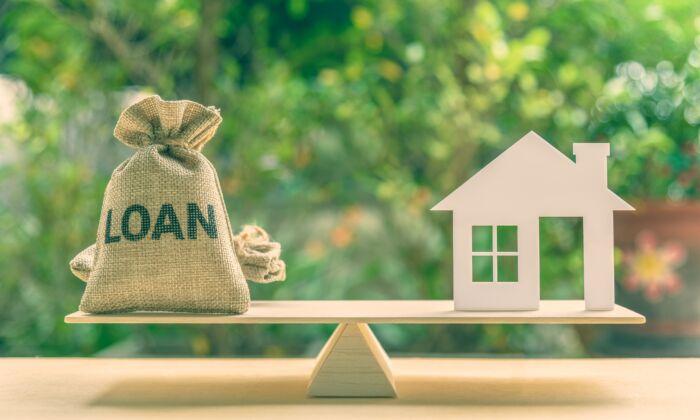A home equity line of credit (HELOC) uses your home’s equity to finance a variable interest-rate loan. You wouldn’t have the money upfront like you would a conventional loan. Instead, you draw against your line of credit. With a HELOC, your home is your collateral.
There are times a HELOC is a worthwhile mechanism. But it shouldn’t be used for just any purchase. The key is to know when a HELOC is not a wise move. There is a few “don’ts” when it comes to a HELOC.
Don’t Use to Solve Monthly Cash Flow Problems
A HELOC is not a good option if you’re having cash-flow problems. You’re simply using the HELOC to solve day-to-day budgetary shortfalls.Remember, you must repay a HELOC. So it will just add to your cash-flow problems.
Don’t Buy a Vehicle with HELOC
Using a HELOC to buy a vehicle is not a good idea. You’re simply moving debt around. An auto loan doesn’t affect your home’s equity, and you'd just be buying a depreciating asset with your HELOC.If you have an auto loan and lose your job, you may lose your car. But if you lose your job and can’t pay the HELOC, you’ll lose your house.
Don’t Use as Emergency Fund
A HELOC is not a great emergency fund. A bank or credit union can freeze your HELOC at any time. This is especially true if there is a drop in the job market. If your credit score drops, it might also trigger a freeze.It’s not a reliable mechanism if you have an emergency. That’s because if you are hit with an emergency, you must pay the HELOC and the mortgage or risk losing your home.
Don’t Pay for College
On the surface, it might seem like a HELOC would be a great way to pay for college. But federal student loans are safer and probably more cost efficient.If you have a financial crisis, you can enroll in a repayment plan based on income. But if you have a fiscal emergency with a HELOC home, you risk your home.
Don’t Pay Off Debt
Because of the lower interest rates a HELOC offers compared to credit cards, this also looks like a viable option. But don’t be fooled.Student loans, credit cards and personal loans are unsecured. You don’t have anything but your credit score on the line. Your property is safe.
When you move unsecured debt to secured debt, you risk losing your collateral, i.e., your home.
Don’t Use HELOC for Vacation
Taking out a HELOC for a non-essential item is not a good idea. HELOC rates are variable, as they change over time. You may find that your low-interest vacation just went up.Instead, save money for a vacation and pay in cash.
Don’t Use for Investing in Stocks or Cryptocurrencies
Using your HELOC to invest in stocks, cryptocurrency, and other digital assets is risky. There’s no guarantee you'll receive a return on investment. You could in fact lose all your money.Even if you don’t lose everything, your investment could drop in value while your HELOC interest rate increases. This can put you in a financial bind and risk your collateral.
Don’t Use HELOC to Buy Real Estate
These are generally speculative investments. And they are often long term. So even if your real estate investment goes well, you might be unable to sell and use the money to pay down the HELOC quickly.Consequences of HELOC
The most significant consequence of a HELOC is losing your house or other collateral. A lender holds a second lien on your home. So, if you fall behind on your payments, the bank could foreclose on the house.And although the repayment period is usually 20 years, you must pay back the loan in full when you sell your home. Most homeowners in America live in their house anywhere from six to 18 years and still owe on their mortgage. That could be a hefty bill when ready to sell.
Lower Credit Score
A HELOC can affect your credit score. One factor determining a credit score is your available line of credit. It looks at how much of your credit is being used.So, adding a large HELOC can negatively affect the credit score. This could be a hindrance if you go to refinance.
Some HELOCs Require Balloon Payment
Like a balloon mortgage, some HELOCs have a balloon payment. You may have thousands of dollars to come up with at once. This could be difficult for many people, primarily if the HELOC was originally used to cover revolving debt.Once more, you risk losing your home if you can’t come up with the funds.
HELOC Not Free Money
A HELOC may seem easy, but it’s not free money. There are consequences to using it frivolously. Don’t exchange debt for debt by paying off credit cards. And you might not want to endanger your home by taking a risk on the stock market. Use a HELOC wisely.The Epoch Times Copyright © 2022 The views and opinions expressed are those of the authors. They are meant for general informational purposes only and should not be construed or interpreted as a recommendation or solicitation. The Epoch Times does not provide investment, tax, legal, financial planning, estate planning, or any other personal finance advice. The Epoch Times holds no liability for the accuracy or timeliness of the information provided.






